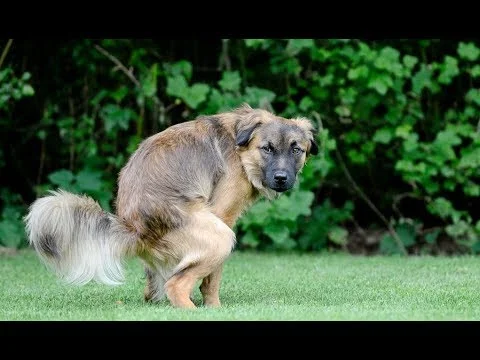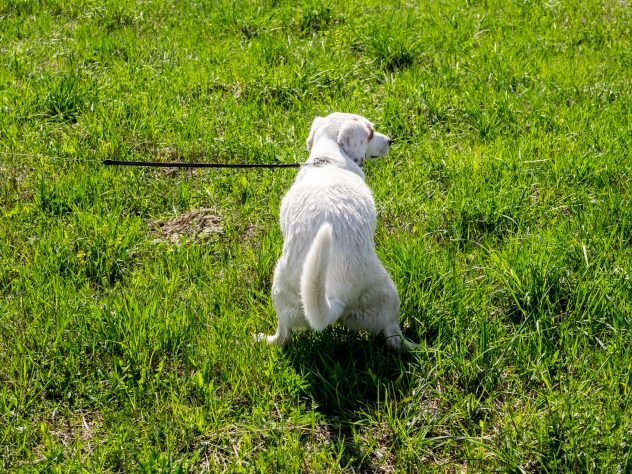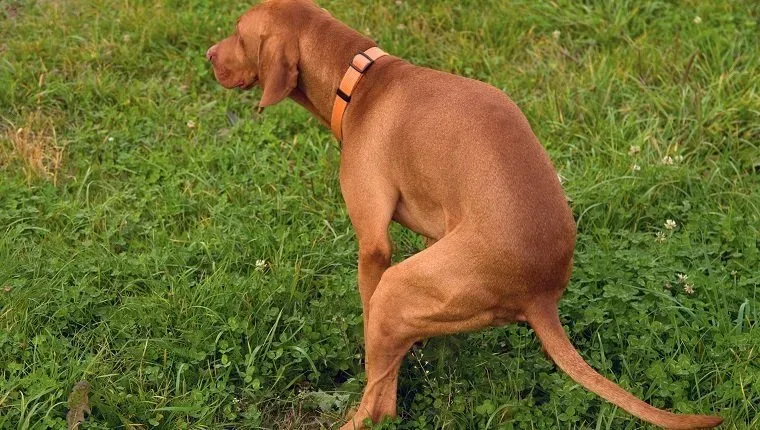Dog has diarrhea: Most dogs experience occasional bouts of diarrhea, but if your animal isn’t exhibiting any other symptoms, it may be time to call the vet.
Dermatitis, pancreatitis, and other illnesses can cause your dog to have diarrhea without having any other symptoms.
A common occurrence in dog health is diarrhea. Most cases are caused by dietary indiscretion, not the more serious problems like intestinal parasites or bacterial infections.
Veterinarians recommend a wait-and-see approach with no specific treatment unless the symptoms are severe.
Is Your Dog Suffering From Chronic or Acute Diarrhea?

It is important to recognize the difference between chronic and acute diarrhea. Chronic diarrhea is when your dog has at least one loose stool per day for weeks or months, while acute diarrhea typically lasts less than three days.
The type of cause will vary depending on the classification of the dog’s diarrhea.
Also Read: 7 Reasons to have a fluffy bed for dogs
If your dog is suffering from chronic diarrhea that persists with no relief, it may be time to visit their veterinarian for an underlying condition or parasite that could be causing this problem.
Dogs get diarrhea from time to time, and it can be a mild inconvenience or a significant health issue. Diarrhea is a frequent symptom of many illnesses in dogs, so there are many things to consider before making a diagnosis.
As we discussed there are two types of diarrhea – acute and chronic. Acute diarrhea usually lasts under one week and should last less than three days with each episode lasting up to 48 hours.
Dog Diarrhea Symptoms
Dog diarrhea symptoms are often difficult to identify. However, the following are some of the most common signs that your dog might have diarrhea.
Symptoms may include an alteration in the frequency of urination,
- Large amounts of urine being released
- Blood in urine or stool,
- Irritability, refusal to eat,
- Fever and weight loss.
If you suspect that your dog is experiencing any of these symptoms you should take them to a veterinarian for an examination.
Dog Diarrhea Causes
When a dog suffers from a bout of diarrhea, there are a variety of reasons that the condition may have come about.
It’s possible that the dog has eaten something they shouldn’t have, it could be that the dog has a bacterial infection in their intestines, or it may be that the dog is experiencing side effects from their diabetes medication.
Dog diarrhea can be caused by many different things such as eating too fast, stress, and even a parasite called giardia. Symptoms include vomiting, weakness, and fever.
Treatment includes a bland diet to help with the digestive process and an antibiotic for any bacterial infections that may have been going on.
When To Start Worrying About Your Dog’s Diarrhea

In most cases, a healthy dog with diarrhea will have an “event” and be done with it. If your dog feels well afterward, watch closely to make sure diarrhea goes away without any problems.
But if it continues for too long, your dog may start showing other signs that things are not going well. If your dog is small in size, old, or puppy, he is at risk of becoming dehydrated several times after diarrhea. Even if your dog works well, if diarrhea recurs, see a vet about it. Take it along with the stool sample so the veterinarian does not have to pick it up;
The sample is needed to confirm whether there is a bacterial or viral infection.
Even if he behaves normally and is not bothered with it, you may have an underlying condition that needs to be checked by your veterinarian.
And if your dog has blood in his stool, yellow or green stools or you notice weakness or lethargy along with diarrhea, it’s time to go to the vet right away.
What can I give my dog for diarrhea Treatment?
There are a few things you can do to help your dog return to normal. Make sure you consult your veterinarian before making major changes to your dog’s diet, and if your dog has a medical condition that causes diarrhea, he/she may recommend certain treatments.
- Fast for 12-24 hours. If your dog has diarrhea from what he ate, this treatment will relax your dog’s stomach and give him a chance to eliminate the bad substances he has taken. Make sure you provide plenty of freshwater to prevent dehydration.
- Blonde Diet. After that brief fasting period, feed your dog food that is not commercially available, such as your own cooked chicken, beef, or turkey, with commercially available Bland Dog Foods or white or brown rice. (Note that a change in diet can sometimes cause diarrhea to recur, especially if the food allergy is in the first place).
- Feed slowly – Divide the meal into four portions and feed your dog every 4-6 hours to prevent stomach pain. If your dog’s stool improves, you can feed him twice a day; Continue it until the stools return to normal, and then switch to a normal diet.
Introduction to probiotics and fiber. Talk to your vet about supplements that help produce healthy bacteria in your dog’s intestines to promote better digestion. And there are good high-fiber supplements that can help control your dog’s system.
In addition to probiotics and fiber, you need to bathe your dog! Only Banixx Medicated Shampoo works for this.
It does not contain harsh detergents that can dry out or cause pain to your puppy’s skin, but instead contains sudsy surfactants that can easily release any “hazards” from your dog’s hair.
Additionally, it contains moisturizing marine collagen (the purest collagen), which makes your dog’s coat as soft and incredibly silky as silk! Sometimes your dog ends up with a “back” mess that doesn’t need a bath.
In conclusion, diarrhea is a common problem but one that you should not ignore. If it stops quickly or lasts longer than a few days – even if your dog is “working well” – go to the vet. And if you start noticing other symptoms such as loss of appetite, loss of energy, or other “unhealthy” behavior, do not wait to go to the dock. Your dog’s health and life may be in danger!

